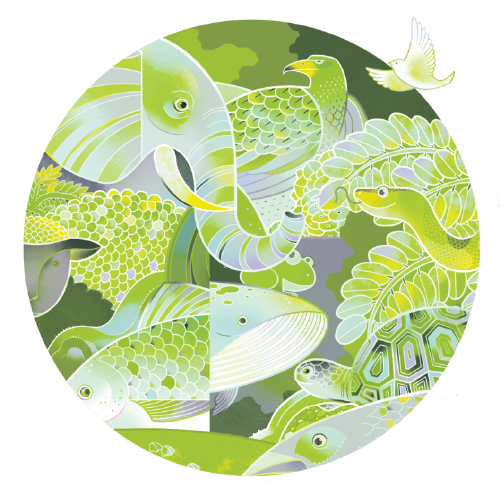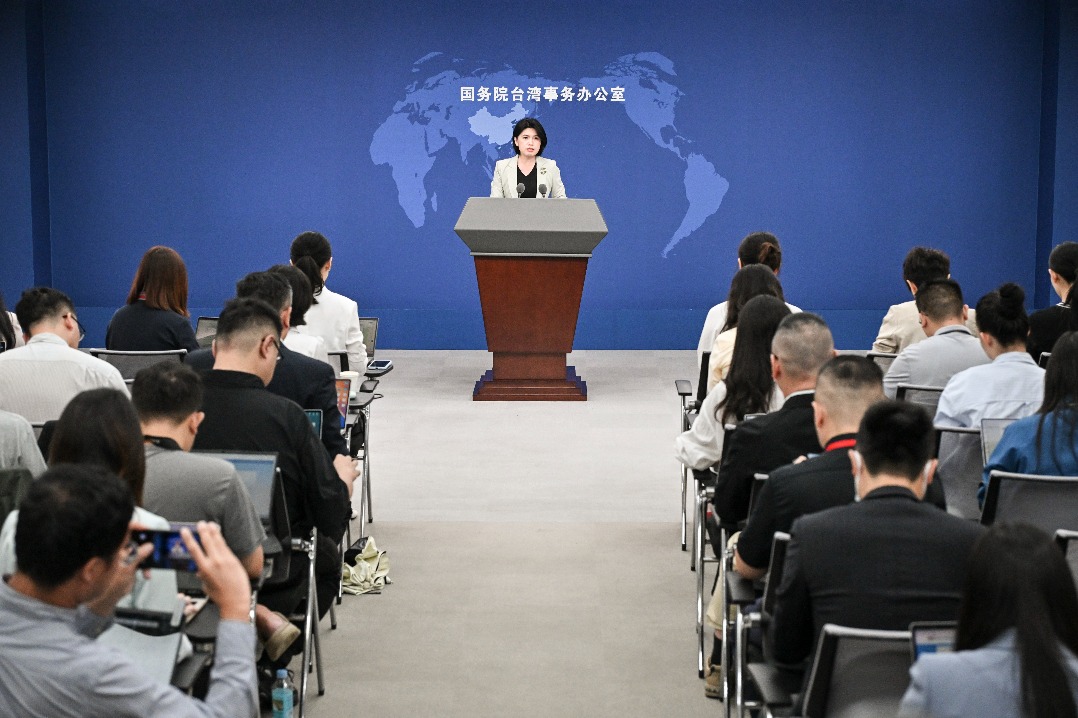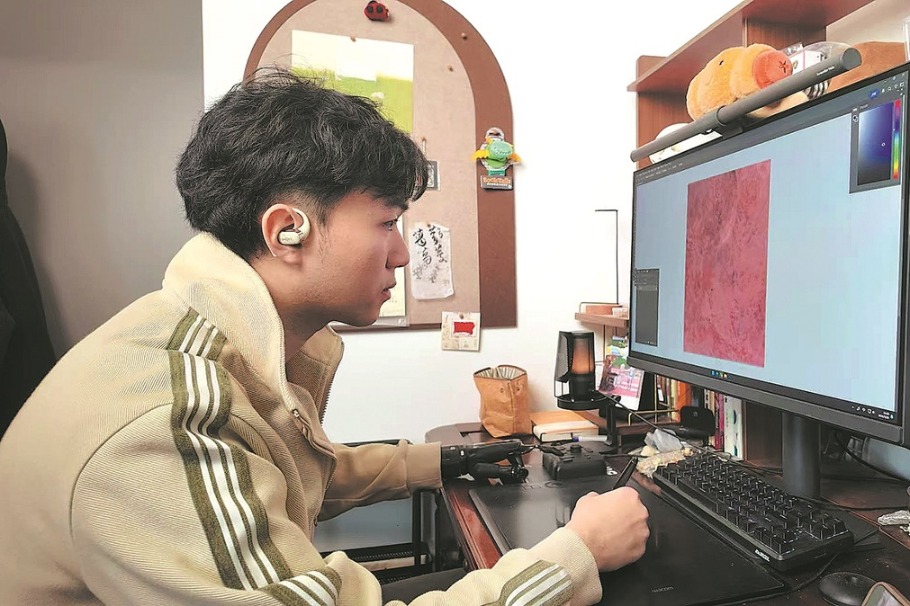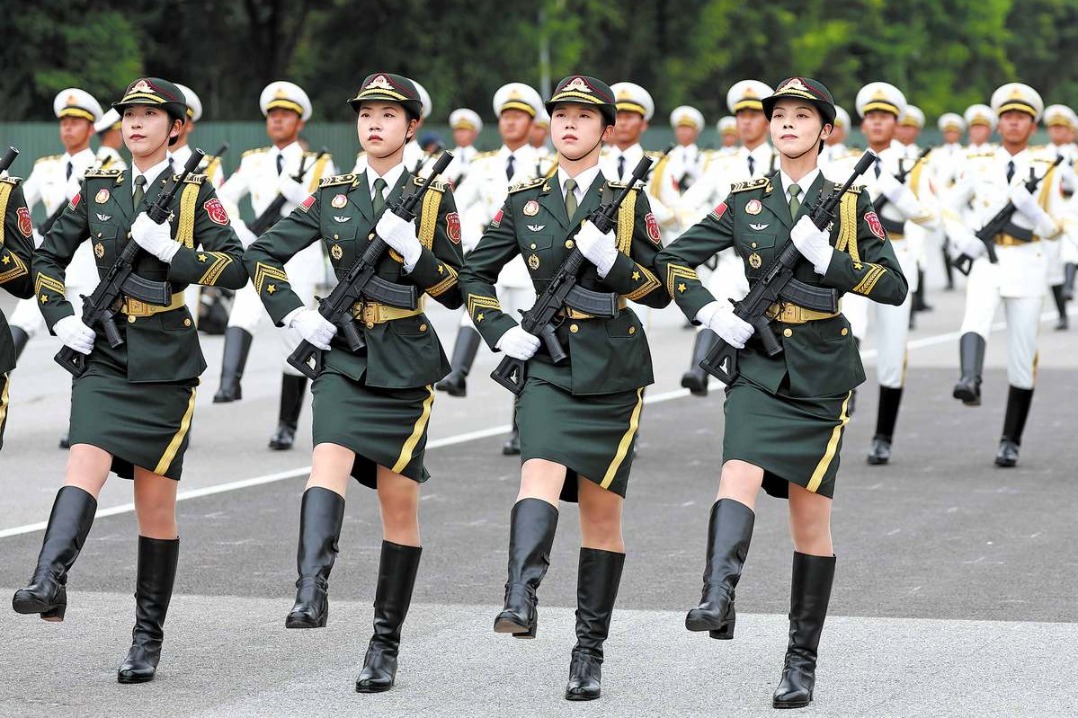Now or never, for life as we know it


It is time to stop the degradation of ecosystems and arrest biodiversity loss before it is too late
Achieving sustainable social and economic development is a long-term pursuit of humanity. From the perspective of environment, the United Nations Environment Programme believes that the degrading ecosystems and biodiversity loss are a huge crisis confronting humans in their pursuit of sustainable development. The outbreak of the novel coronavirus pandemic is a strong warning nature has given to humans, underlining the close links between the ecosystems, biodiversity and human health.
Healthy ecosystems and abundant biodiversity provide us not only with food and resources, but also a broad range of ecological services, including greenhouse gas mitigation, decomposition of wastes discharged by humans, and protection against disasters and contagious diseases. Without biodiversity, there will be no future for humanity.
The Convention on Biological Diversity, adopted in 1992 has three goals: conserving biodiversity, achieving a sustainable use of its components, and the fair and equitable sharing of benefits arising from genetic resources.
Global biodiversity faces serious threats. The recently published Global Biodiversity Outlook 5 finds rapidly degrading ecosystems and accelerating biodiversity loss are an acute crisis. It warns that we are facing the sixth mass extinction of wildlife on the Earth, with nearly 1 million of the planet's estimated 8 million plant and animal species on the brink of extinction; and human activity has altered more than 75 percent of the Earth's land areas, with biodiversity and ecosystems declining.
Of the 20 Aichi Biodiversity Targets set up in Aichi, Japan at the 10th meeting of the Conference of the Parties to the Convention on Biological Diversity in 2010, also known as COP 10, not a single one has been fully achieved, and only six have been partially achieved. The Aichi Biodiversity Targets are reflected directly in many of the targets within the 2030 Agenda for Sustainable Development, and underpin a wider set of the Sustainable Development Goals. If the worsening trend continues, many goals in the 2030 Agenda will also not be achieved.
As countries around the world strive to overcome the COVID-19 pandemic and revive economic and social activities, the United Nations is appealing to governments to "Build Back Better" by taking into account three aspects-pollution control, climate crisis response and biodiversity conservation-in making and implementing their post-pandemic recovery policies.
The Global Biodiversity Outlook 5 lays out eight areas where transformative changes should be made for humanity to realize sustainable development, namely forests and land; freshwater; fisheries and oceans; sustainable agriculture; food systems; climate action; cities and infrastructure; and biodiversity-inclusive "One Health". For each of the transition areas, there are specific approaches, such as deploying green infrastructure in cities to reduce the influence on biodiversity; and a sustainable climate action transition, employing nature-based solutions alongside a rapid phaseout of fossil fuel, to reduce the scale and impacts of climate change.
Global cooperation and multilateralism are called for to conserve ecosystems and biodiversity. Only by working together and taking concrete actions can we achieve the Vision 2050 on Biodiversity of "living in harmony with nature".
Regarding the materialization of that vision, countries should integrate and prioritize biodiversity conservation in their national socioeconomic development agendas. Governments should enact relevant laws and regulations and step up enforcement, build a coordination mechanism among departments, raise awareness of biodiversity through education, and encourage the public to support and participate in conservation efforts.
Globally, countries should fulfill their obligations in biodiversity preservation prescribed in relevant multilateral environmental conventions, such as the Convention on Biological Diversity, the Convention to Combat Desertification, the Convention on International Trade in Endangered Species of Wild Fauna and Flora, and the Convention on Wetlands. Best practices should be shared via closer international cooperation and exchanges.
Businesses and financial sectors need to shoulder their social and environmental responsibilities by conforming to environmental laws and regulations, actively preserving and restoring ecosystems, and funding programs and activities of biodiversity protection.
Individually, everyone on the planet-whether as consumers, producers or investors-should make his or her own contribution to protecting the environment and biodiversity, by leading a green, low-carbon and frugal life, consuming reasonably, taking part in environmental volunteering activities, and offering suggestions for the work of environmental conservation. We should care for Mother Nature, protect wild plants and animals, preserve their habits, say no to products made of rare wildlife species, and refrain from eating protected and rare wildlife.
The year 2020 was designated by the UN as the Year of Biodiversity. However, UN Biodiversity Conference, or the 15th meeting of the Conference of Parties (COP 15) to the UN Convention on Biological Diversity, which was originally scheduled to be held in China's Kunming this year, has been postponed to 2021 because of the pandemic.
The conference is meant to set biodiversity conservation targets that are to be achieved by 2030 and draft a Post-2020 Global Biodiversity Action Framework. It will make decisions on issues related to biodiversity conservation including capacity building and fund raising in the next decade and beyond to set humanity on course for achieving the vision of living in harmony with nature by 2050. Therefore, it is expected to be a milestone event in the history of the Convention on Biological Diversity.
"Humanity is waging war on nature… this is suicidal," said UN Secretary General Antonio Guterres during a landmark speech on the state of the planet delivered on Dec 2, adding that "Nature always strikes back-and it is already doing so with growing force and fury."
We should clearly realize that humanity needs healthy ecosystems and biodiversity more than ever before. It is not too late to halt the damage we are doing to nature, but it requires stronger ambition and commitments, as well as more effective implementation. It is the time to act. Now or never.
The author is the head of the United Nations Environment Programme China Office. The author contributed this article to China Watch, a think tank powered by China Daily.
The views do not necessarily reflect those of China Daily.

































